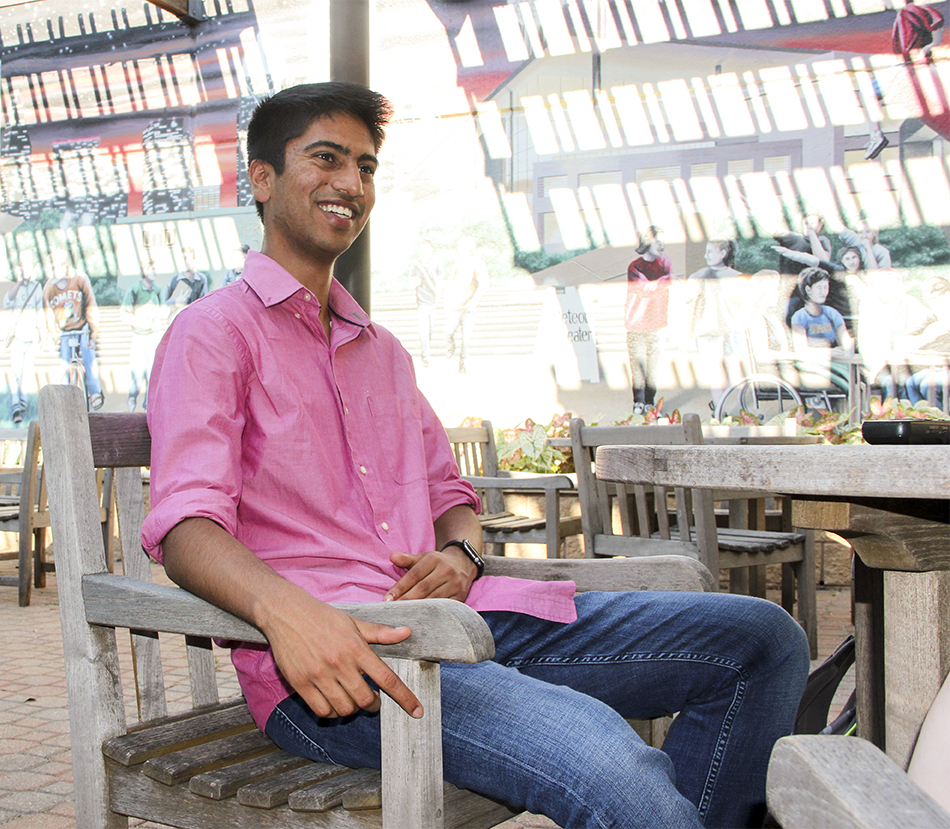With the sound of his heartbeat thumping in his ears, neuroscience senior Siddhartha Srivastava sat in front of his laptop anticipating a moment that would define the next years of his life.
He was checking to see how he performed on the Medical College Admission Test.
What he saw left him in total disbelief. He’d managed to do what only 0.5 percent of students who take the MCAT do every year — achieve a perfect score.
January was the first time Srivastava took the MCAT, and he said it didn’t feel like it would be his last.
“I was floored that I got it on the first try, I wasn’t expecting it by any means,” he said. “No one walks out of the MCAT feeling like they destroyed it.”
On the day results came out, Srivastava was anxious about receiving the score. However, when the time came to check, he couldn’t log into the website because it was down for maintenance.
When the website was fixed an hour later, Srivastava logged on.
“When I was looking at it, I didn’t know what the numbers meant, all I saw was the percentile,” he said.
Looking at the results, each section showed he scored in the 100th percentile, which confused Srivastava even more.
“When I saw the total at the bottom — a full score — I thought that it was a sample,” he said.
After another minute, the realization finally hit that he’d achieved a perfect score on the MCAT on his first attempt.
“At that point I was screaming,” he said. “(My roommates), they walked in and (when) I told them they started screaming.”
“I’m looking forward to the opportunities that it opens in terms of helping people and volunteering.” – Siddhartha Srivastava, Neuroscience Senior
In the following days, his friends and family celebrated with him and even threw him a surprise party. The news about his score also spread around campus quickly, and people he had never seen before began recognizing him.
“It was really cool to know that so many people were excited about that accomplishment,” he said.
For other students taking the MCAT, Srivastava recommends they focus on the critical reading section because it can help them in other sections.
“You can apply stuff you already know to stuff you’ve never seen before,” he said. “Practice is more important than content review.”
As Srivastava is applying for medical schools, he said he is keeping his options open by considering both in-state and out-of-state schools. However, he is certain he wants to become a surgeon.
He was inspired to become a surgeon by an incident when he was younger, where he was flying a kite at a campsite. Srivastava was walking backwards, staring up at the kite, when he suddenly tripped and his head hit a metal grill.
He doesn’t remember much about the incident except for waking up in the hospital and the surgeon telling him he would be fine. That reassurance comforted Srivastava and inspired him to pursue a career in the medical field.
Months after receiving his score, Srivastava reflects back onto his achievement.
“It shows me that I have the dedication and the passion for the subject,” he said. “But ultimately it’s an academic achievement and I’m looking forward to the opportunities that it opens in terms of helping people and volunteering.”











